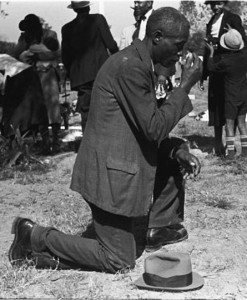
Newman was a twenty-year-old African-American who, in 1943, awaited execution in a prison in Mississippi. His crime was that of ambushing and shooting a man named Sid Cook, his beloved grandmother’s abusive second husband.
One day, noticing a medal hanging around the neck of a fellow prisoner, Claude asked the young man what it was. The latter responded by casting the medal to the ground with a curse saying, “Take it.”
The medal was a Miraculous Medal of Our Lady of Graces, and though knowing nothing about it or who it represented, Claude picked up the oval trinket and hung it around his neck.
A Vision
During the night, Claude was awakened by a touch on his wrist to behold a glowing vision whom he later described as “the most beautiful woman that God ever created.”
The lady calmed the frightened man and said, “If you would like me to be your mother, and you my child, send for a priest of the Catholic Church.” And she disappeared.
“A ghost, a ghost!” screamed Claude, at the same time clamoring for a Catholic priest.
The next morning Father Robert O’Leary, SVD, (who later wrote the story) was summoned.
After listening to the extraordinary account, he found that Claude was illiterate, and knew nearly nothing about religion. So he proceeded to carefully catechize not only him but four other inmates who were deeply impressed by Claude’s account. Occasionally, two sisters from Father O’Leary’s church joined the catechetical team.
Heavenly Insights on the Sacrament of Confession
Several weeks later, when Father introduced the sacrament of confession, Claude volunteered, “Oh, I know about that! The Lady told me that when we go to confession we are kneeling down not before a priest, but before the cross of her Son. And that when we are truly sorry for our sins, and we confess our sins, the Blood He shed flows down over us and washes us free from all sins.”
The priest and nuns were stunned at this new revelation. Seeing their surprise, Claude heartily apologised, “O, don’t be angry, don’t be angry. I didn’t mean to blurt it out!”
But assuring him that he was far from angry, Father O’Leary asked Claude if he had seen the Lady again.
Taking the priest aside, the young man said, “She told me that if you doubted me or showed hesitancy, I was to remind you that lying in a ditch in Holland in 1940, you made a vow to her which she’s still waiting for you to keep.”
This revelation convinced Father of Claude’s claim. In fact, during the war, O’Leary had promised to build a church in honor of the Immaculate Conception, a promise he fulfilled in 1947. This church stands to this day in Clarksdale, Mississippi.
As Father and Claude returned to the class on confession, Claude told his classmates, “You should not be afraid of confession. You’re really telling God your sins, not the priest. You know, the Lady said that confession is something like a telephone. We talk through the priest to God, and God talks back to us through the priest.”
On the Holy Eucharist
Father O’Leary testified: “I’ve never seen anyone go to his death as joyfully and as happily.”
When about a week later Father O’Leary and the sisters were preparing to teach on the Blessed Sacrament, Claude asked of he could share what the Lady had told him about the Eucharist. The catechist joyfully acquiesced, and Claude related, “The Lady told me that in Communion, I will only see what looks like a piece of bread. But she told me that It is really and truly her Son, and what He will be with me just as He was with her before He was born in Bethlehem. She told me that I should spend my time like she did during her lifetime with Him, in loving Him, adoring Him, thanking Him, praising Him, and asking Him for blessings. I shouldn’t be distracted or bothered by anybody else or anything else, but I should spend those few minutes in my thoughts alone with Him.”
Baptism and a Party Before Execution On the Holy Eucharist
Finally, the catechumens were received into the Church. The baptismal records of St. Mary’s parish (Vicksburg) record Claude’s baptismal day as January 16, 1944. He was scheduled for execution on January 20th.
As Sheriff Williamson asked Claude if he had a last request, he couldn’t believe the answer:
“Well, all my friends are all shook up. The jailer is all shook up. But you don’t understand. I’m not going to die; only this body is. I’m going to be with her. So, then, I would like to have a party.”
And so, he had his party with cake and ice cream and his fellow inmates were allowed to attend.
Execution
On the morning of execution, Claude was full of joy. As he prepared with Father O’Leary, Sheriff Williamson rushed in shouting that the governor had granted a two-week reprieve. To his amazement, Claude broke down in sobs, inconsolable, crying:
“But you don’t understand! If you ever saw her face, and looked into her eyes, you wouldn’t want to live another day! What have I done wrong these past weeks that God would refuse me my going home? Why, Father? Why must I still remain here for two weeks?”
Then Father O’Leary had an inspiration. There was a prisoner, James Hughs, who, despite having been raised Catholic, had led a horribly immoral life, and was also on death row for murder. James had a particular hatred for Claude, and all priests as well.
Father O’Leary then proposed that Claude offer his disappointment on not being executed that day for Hughs’ conversion, which Claude did, generously offering his prayers and last two weeks for the salvation of his fellow inmate.
Finally, Claude was executed on February 4, 1944.
Father O’Leary testified: “I’ve never seen anyone go to his death as joyfully and as happily. Even the official witnesses and the newspaper reporters were amazed. They said they couldn’t understand how anyone could sit in the electric chair beaming with happiness.”
Claude had obtained from Our Lady that James have a glimpse of his place in hell. This glimpse had horrified him and, full of fear of God, he had asked to go to Confession.
To Heaven, But Not Alone
When the time came for James Hughs to be executed, he violently refused all spiritual assistance, cursing and blaspheming even while seated on the electric chair. He was asked if he had a last word.
Suddenly, looking to a corner of the room, there was a surprised, then horrified, look on his face, and he shouted, “Get me a priest!”
Father O’Leary, who was in the room, approached and heard the man’s full confession.
Then Sheriff Williamson, who could not bear his curiosity, asked the condemned man what was in the corner. James explained that he had seen Claude Newman and the Blessed Virgin behind him, her hands on his shoulders. Then, Claude had obtained from Our Lady that he, James, have a glimpse of his place in hell. That’s when, filled with horror, he demanded a priest.
Once again the simple wearing of the Miraculous Medal of Our Lady of Graces called down Our Lady’s maternal gaze, and saved not only one, but many souls in that Mississippi prison.
Subscribe to our newsletter!
This year, it is more crucial than ever that we turn to prayer and intercession to increase devotion to Our Lady across our country. That’s why you’re invited to join us in the Three Hail Marys Pledge, a powerful devotion that can bring personal spiritual benefits and national transformation. By reciting three Hail Marys daily, you honour the Immaculate Heart of Mary and seek her intercession for the conversion of sinners, the salvation of souls and the restoration of Ireland’s Catholic Faith. This ancient devotion, revealed to Saint Mechtilde, promises spiritual benefits including protection from mortal sin and the assurance of a good death. Your daily prayers will contribute to an increase in devotion to Our Lady, the conversion of sinners and the moral renewal of our country. Let us commit to this powerful devotion and seek the guidance and protection of Our Lady.


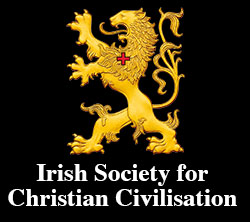
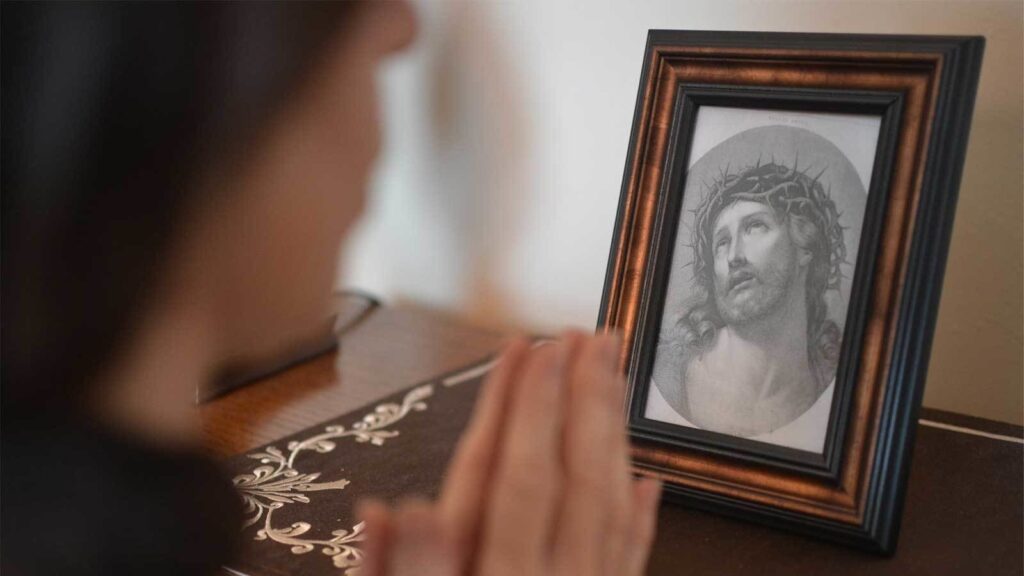

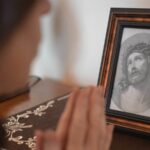
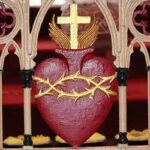
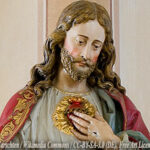
What a beautiful story! Auxilium Christianorum, ora pro nobis!
What a brilliant Story Damien, Thanks very much 🙏🙏 it just goes to show that the hardest of All sinners, once they Repent will be saved.
This man Claude is a great witness to God’s work, care and love for each one of us. Let us pray that we can witness each and every day to the emmense love Our Lord Jesus and His mama Mary have for each person He has created.
Wonderful, beautiful.